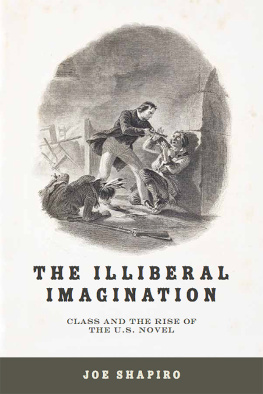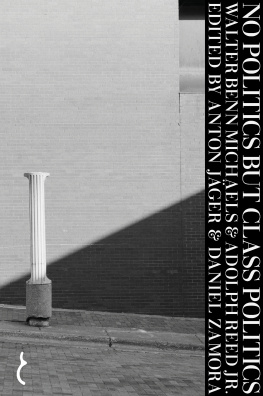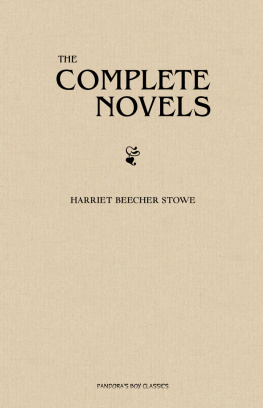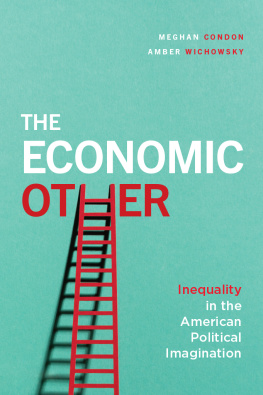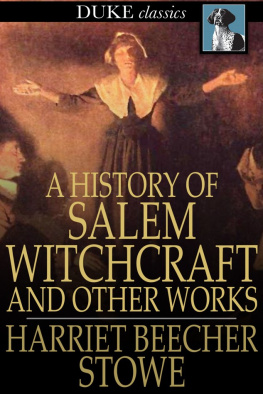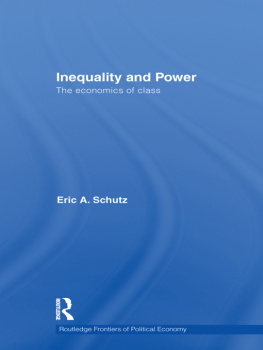THE ILLIBERAL IMAGINATION
Class and the Rise of the U.S. Novel
Joe Shapiro
University of Virginia Press
Charlottesville and London
University of Virginia Press
2017 by the Rector and Visitors of the University of Virginia
All rights reserved
Printed in the United States of America on acid-free paper
First published 2017
9 8 7 6 5 4 3 2 1
Library of Congress Cataloging-in-Publication Data
Names: Shapiro, Joe 1981 author.
Title: The illiberal imagination : class and the rise of the U.S. novel / Joe Shapiro.
Description: Charlottesville : University of Virginia Press, 2017. | Includes bibliographical references and index.
Identifiers: LCCN 2017011674 | ISBN 9780813940502 (cloth : alk. paper) | ISBN 9780813940519 (pbk. : alk. paper) | ISBN 9780813940526 (e-book)
Subjects: LCSH: American fiction19th centuryHistory and criticism. | Social classes in literature. | Social conflict in literature.
Classification: LCC PS374.S68 S53 2017 | DDC 813/.309355dc23
LC record available at https://lccn.loc.gov/2017011674
Cover art: The sight of this weapon secured the victory, the black faced villain shrinking back into a corner begging piteously not to be shot, by Felix Octavius Carr Darley for The Redskins, James Fenimore Cooper (New York: W. A. Townsend & Co., 1860). (Courtesy of the American Antiquarian Society)
ACKNOWLEDGMENTS
First, hearty thanks go to Angie Hogan at the University of Virginia Press, to the press readers, and to my copy editor, Ruth Melville.
This book began as a dissertation at Stanford University. I was fortunate to take courses there with John Bender, Terry Castle, Amir Eshel, Shelley Fisher Fishkin, Jay Fliegelman, Roland Greene, Seth Lerer, Hayden White, Alex Woloch, and Bryan Wolff. I owe the members of my dissertation committeeFranco Moretti, Gavin Jones, Ezra Tawil, and Nancy Ruttenburgmassive intellectual debts. I also benefited from the brilliance of my fellow students at Stanford: Sarah Allison, Mike Benveniste, Joel Burges, Nigel Hatton, Heather Houser, Ju Yon Kim, Kenny Ligda, David Marno, Christopher Phillips, Jayson Gonzales Sae-Saue, Nikil Saval, Claire Seiler, Nirvana Tanoukhi, and Jennifer Harford Vargas taught me heaps.
The path that led to this book began at Brown University. Nancy Armstrong and Leonard Tennenhouse first introduced me to the theory of the novel. Jim Egan and Philip Gould got me hooked on early and nineteenth-century American literature. Im very pleased to have the opportunity here to thank these formative influences on me for their excellent teaching and for their guidance.
At Southern Illinois University, David Anthony and George Boulukos read drafts, helped me to see this book to completion, and steered me through probation; Ed Brunner, Anne Chandler, Betsy Dougherty, K. K. Collins, Dave Johnson, Elizabeth Klaver, Eric Lenz, Lisa McClure, Scott McEathron, Ryan Netzley, Rachel Stocking, Jonathan Wiesen, and Natasha Zaretsky have shared their professional wisdom with me; Scott Blackwood, Laurel Fredrickson, and Jacob Haubenreich have been the best of comrades.
Harris Feinsod has been my most important interlocutor since long before I got started on the project that became The Illiberal Imagination; this book has been the beneficiary not only of Harriss generous feedback and sage counsel on it from its infancy to its final shape but also of his enduring friendship. Matt Garrett has permitted me to bounce this book off of him at least one time too many, but he has also helped me to think more carefully about the bigger picture.
Finally, I want to express my gratitude to my familyand to Haley Farthing. This book wouldnt be without her, but I owe her so much more than that.
A version of chapter 3 first appeared in American Literary History 27.2 (2015); it is reprinted with the permission of Oxford University Press. Under the title White Slaves in the Late-Eighteenth- and Nineteenth-Century American Literary Imagination, portions of chapter 5 were published in The Cambridge Companion to Slavery in American Literature, ed. Ezra Tawil (New York: Cambridge University Press, 2016); they are reprinted here with the permission of Cambridge University Press.
INTRODUCTION
T he title of this book, The Illiberal Imagination, is meant to evoke two much earlier books: Lionel Trillings The Liberal Imagination (1950) and Louis Hartzs The Liberal Tradition in America (1955). And it is intended to emphasize that this book is in large part an argument with the understanding of U.S. literary history for which these earlier books laid the foundation.
In the United States, Trilling famously argued, the real basis of the novel has never existedthat is, the tension between a middle class and an aristocracy which brings manners into observable relief as the living representation of ideals and the living comment on ideas. Our class structure has been extraordinarily fluid. In this sense, the United States is liberal through and through.
Can we, though, really characterize the early U.S. bourgeoisie and its literature as liberal? Do we find an unambiguous celebration of possessive individualismof market society, of a socioeconomic order in which market relations... shape or permeate all social relations? We can now say that the bourgeois self that is articulated by early and antebellum U.S. literature is internally divideda bundle of tensions and contradictory attitudeswhere the market is concerned.
Even so, the Cold War exceptionalism of Trilling and Hartz continues to haunt the study of preCivil War U.S. literature in general and the study of the preCivil War U.S. novel in particular. Granted, the novel is now often understood to function not as a reflection of a world in which class does not matter but as a discourse linked to a specific class, namely, the middle class.
In contrast to the liberal consensus model of U.S. literary history, my argument in The Illiberal Imagination is that the consolidation of the early U.S. novel includes the representation of class inequality and class struggle, and that the early U.S. novel helps to consolidate the U.S. bourgeoisie precisely through its representations of class inequality and class struggle. By reaching back to the late eighteenth century and looking to novelists like Cooper and Stowe, novelists who have been associated largely with conflicts other than ones pertaining specifically to class division among whites, I hope to challenge the received wisdom about the arc of U.S. literature more broadly. Class, class struggle, and class consciousness were a part of the raw material U.S. fiction worked on long before what literary historical common sense would have us suppose.
Moreover, it is not merely that class and class struggle are themes that
I am not arguing that early U.S. novels entirely eschew representing the U.S. in terms of social fluidity and class mobility. Certainly, mobility is in the early U.S. novels on which I focus. Charles Brockden Browns Arthur Mervyn is, crudely summarized, the story of a poor young man who becomes finally a member of the bourgeoisie. Hugh Henry Brackenridges narrator in Modern Chivalry tells us that the offspring of a plain farmer may be a philosopher; a lawyer; a judge. And in James Fenimore Coopers Littlepage trilogy, poor but virtuous heroines marry up into elite, landowning families.
I am arguing, though, that U.S. novelists through the 1840s work to construe the existence of class inequality as natural, right, and desirable. Indeed, for early U.S. novelists, white men and their families are not, will not, orand this is crucialshould not become middle class or members of one economic class. Not for nothing, in novels published through the 1840s, characters that protest economic inequality, their subordinate positions within the economy, or private accumulation of great fortunes by elites are as a rule also villainsthieves, murderers, would-be dictators. For early U.S. novelists, collective movements to abolish class inequality and to produce a society free of class are to be thought of as supremely dangerous. Where class is concerned, the early U.S. novel is not as utopian as we might expect it to be. Recognizing as much enhances, I would suggest, our understanding both of the early U.S. novel and of the itinerary of bourgeois ideology in the United States.
Next page
